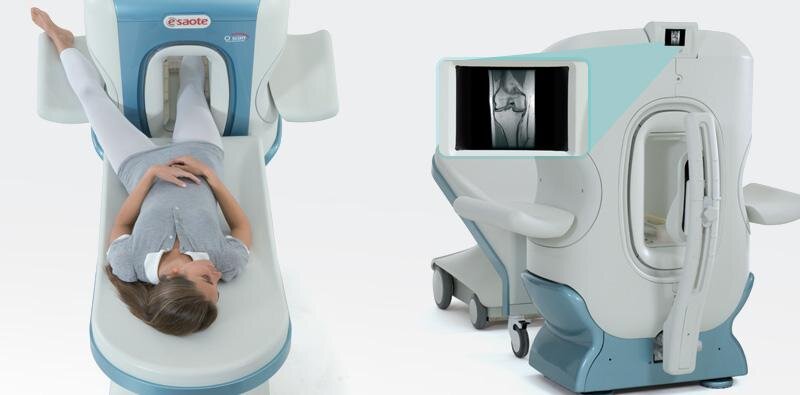MRI Examinations




MRI: A Fast, Simple Examination
Magnetic Resonance Imaging (MRI) is a safe, totally painless way for your physician to look into your body. The pictures created during the exam look at the soft tissue and provide information that can improve the diagnosis. This brochure is provided to answer the questions most frequently asked by people scheduled for an extremity MRI examination.
What Is MRI?
MRI is a way of looking inside the body without x-rays. The exam uses radio waves and a magnetic field to create images of the soft tissues of the body.
How Long Will The Exam Take?
Most exams take about 30 minutes to complete.
Will I Feel Anything?
No. There is no pain, vibration or unusual sensation. The MRI will produce a mild tapping sound during the exam.
What Do I Need To Do During The Exam?
Nothing! Just recline in the exam chair and relax. You will be free to read or sleep during the exam.
What Do MRI Images Look Like?
MRI images look a lot like a conventional x-ray; however, they provide much more detailed information. The images will be provided to your physician or radiologist for interpretation.
How Is The MRI Performed?
You will be asked to recline in a comfortable chair and the technologist will position you. The chair will be moved toward the magnet opening and you will insert the body part to be scanned. Only the extremity being imaged will be inside the magnet, so your head and body will remain outside at all times. You will be asked to remain still during the examination.
What If I Have More Questions?
Your physician or the MRI technologist will answer any questions you may have.
How Should I Prepare For The MRI Exam?
You can eat, drink, and take regularly-prescribed medications prior to the exam. If you will be having a leg exam, you can bring some shorts to wear. Otherwise, you may be asked to change into a hospital gown to avoid any possibility of interference from metal in zippers and fasteners.
You will be asked to remove your watch, credit cards, jewelry, keys, pocket knife, hearing aid, or any other metal objects before approaching the MRI. The magnet could affect the items of this type or the items could affect the magnet.
Please DO NOT bring the following (or any metal items) into the examination room:
Jewelry
Money Clip
Credit Cards
Keys
Pocket Knife
Watch
Tell the doctor if you have:
Aneurysm clips
Cardiac pacemaker
Metal plate
Joint replacements
Metal pins
If you think you are pregnant
